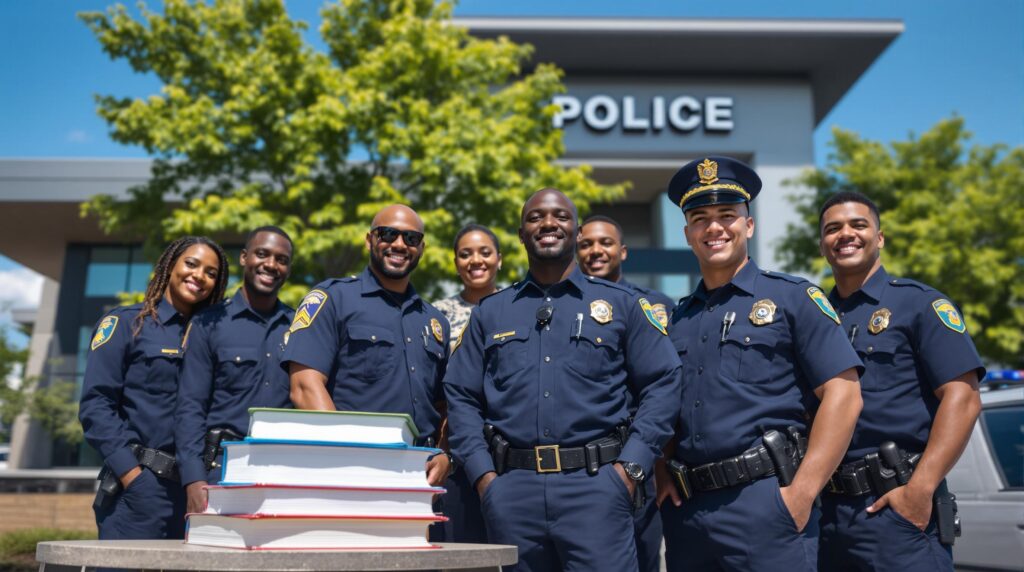Minnesota is facing a critical juncture in public safety, and lawmakers may have found common ground in an innovative approach: scholarships for police training. Spearheaded by Representatives Dan Wolgamott and Bernie Perryman, bipartisan support is building around the Law Enforcement Scholarship Act, a bold initiative aimed at mitigating the looming shortage of officers across the state.
A Looming Crisis in Minnesota’s Law Enforcement
Over 1,000 vacant positions already exist in the state, with approximately 2,700 additional retirements anticipated in the coming years. This growing gap in policing has significant implications for community safety, potentially reducing the efficacy of police responses to incidents and constraining preventative measures like community outreach programs, critical in building trust and preventing crime.
Representative Wolgamott poignantly articulated the urgency, stating, “This is a crisis situation that impacts our police department’s ability to have the men and women in uniform on the street that we need to keep our communities, keep our homes, keep our schools, keep our workplaces safe.” His words underlie a stark reality: without strategic moves like this scholarship program, Minnesota faces an intensified threat to public safety.
Yet, the issue transcends immediate community concerns, reflecting a broader national trend. Similar struggles to recruit and retain officers are widespread across many states, pushing them to craft innovative solutions. The Minnesota proposal, interestingly, mirrors a successful Nebraska program, proving a tested model exists for states to follow.
Scholarships as Strategic Investment
The Law Enforcement Scholarship Act would grant financial aid specifically targeted toward current Minnesota police officers, their dependents, or those who have suffered total and permanent duty-related disability. Crucially, applicants must not already possess a baccalaureate degree and must be pursuing higher education in criminal justice or related fields within state-run colleges and universities.
This scholarship is more than merely financial assistance; it’s a versatile tool addressing both recruitment and retention. Mark Ross, President of the St. Paul Police Federation, highlighted an overlooked benefit: promotional opportunities. Ross explained, “It can help with promotional opportunities. There are certain departments that offer further financial incentives depending on how much education you have.” Providing officers tangible educational incentives could enhance their career trajectories, fostering job satisfaction and ensuring a more stable and committed workforce.
Political Unity Amidst Budget Constraints
Amid budgetary tightness, this proposal’s bipartisan backing is particularly striking. While Minnesota’s state budget is notably constrained this fiscal year, lawmakers have shown a rare unified commitment to prioritizing public safety. Recognizing this scholarship program as a valuable and necessary investment speaks volumes about its perceived efficacy and urgency.
The Minnesota House Higher Education Committee recently deliberated the proposal and laid it over for possible inclusion in their budget—signifying serious contemplation of funding despite complex financial negotiations dominating state politics. Cross-party collaboration, vital for such expenditure during tight fiscal periods, demonstrates broad recognition across the political spectrum of the scholarship’s potential to strengthen community safety and bolster law enforcement ranks.
Historically, bridging partisan divides on public safety funding hasn’t always been straightforward. Yet, the recognition shared by politicians from both ends of the political spectrum on the vital necessity of bolstering Minnesota’s police workforce underscores an important shift toward community-first approaches, blending fiscal responsibility with public accountability.
Long-term Implications for Minnesota Communities
Beyond immediate recruitment and retention benefits, this scholarship program proposes long-term advantages by promoting a well-educated police force better equipped for the complexities of contemporary policing. Educated officers are crucial to implementing effective community policing practices, supporting accountability and transparency, and responding thoughtfully to crises—especially amid rising public scrutiny around law enforcement practices.
Critically, this initiative reflects a progressive understanding of public safety as an issue of collective well-being—everyone benefits from capable, well-supported, professional officers. Engaging current officers and their families in continued education strengthens community ties, offers opportunities for advancement, and ensures the retention of experienced personnel who understand their communities intimately.
Ultimately, Minnesota stands at the crossroads between an impending staffing crisis or harnessing bipartisan cooperative solutions to forge a robust future for public safety. The proposed Law Enforcement Scholarship Act marks a strategic and humanitarian investment by affirming the value and vital role of law enforcement officers. Its success could serve as a visionary blueprint resonating beyond state borders, setting a new standard for addressing nationwide policing shortages effectively, compassionately, and thoughtfully.

